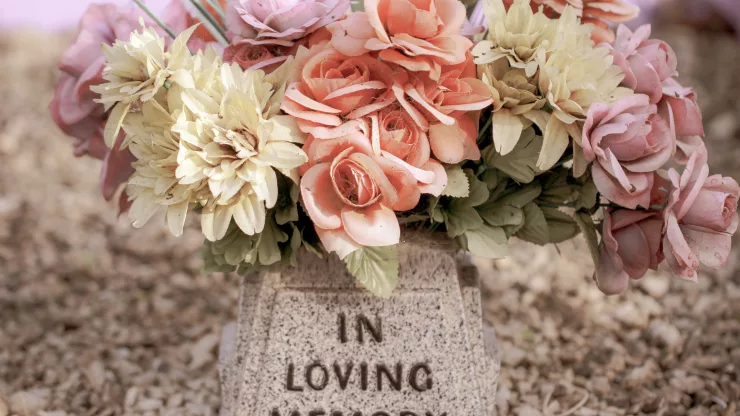Losing a loved one is one of the hardest experiences anyone can go through. Grief can be a complex and overwhelming emotion, and navigating life transitions after loss can be challenging.
While everyone grieves differently, there are ways to cope with grief and move forward in a healthy way.
In this article, we’ll explore some strategies for dealing with grief and navigating life transitions after loss.
Jump to Section
Acknowledge the Pain: Understanding the Grieving Process
The first step in dealing with grief is to acknowledge the pain. Grief is a natural response to loss, and it can manifest in many ways, including sadness, anger, guilt, and numbness.
Understanding the grieving process can help you make sense of your emotions and find ways to cope. Here are some common stages of grief:
- Denial: disbelief and shock that the loss has occurred
- Anger: feeling angry and frustrated about the loss
- Bargaining: trying to negotiate with a higher power to reverse the loss
- Depression: feeling sad, hopeless, and withdrawn
- Acceptance: coming to terms with the loss and beginning to move forward
It’s important to remember that grief is not a linear process, and you may experience these stages in any order or not at all. Be patient with yourself and allow yourself to feel your emotions.
Coping Strategies: Finding Support and Self-Care
While grief can be a painful and isolating experience, you don’t have to go through it alone.
Finding support from loved ones, support groups, or a therapist can help you process your emotions and find ways to cope.
Here are some coping strategies to consider:
- Talk to someone: share your feelings with a trusted friend or family member
- Join a support group: connect with others who have experienced similar losses
- Practice self-care: prioritize your physical and emotional well-being by getting enough sleep, eating healthy, and engaging in activities that bring you joy
- Seek therapy: a mental health professional can help you navigate the grieving process and develop coping skills
Remember, it’s okay to take time for yourself and prioritize your own needs during this difficult time.
Moving Forward: Embracing Change and Growth
After a significant loss, life can feel uncertain and overwhelming.
It’s important to remember that it’s okay to take things one day at a time and to embrace change and growth.
Here are some ways to move forward:
- Set small goals: focus on achievable tasks to help you feel a sense of accomplishment
- Try new things: explore new hobbies or activities that bring you joy
- Practice gratitude: focus on the positive things in your life, even if they are small
- Seek professional help: if you’re struggling to move forward, a therapist can help you develop a plan for growth and healing
Remember, healing takes time, and it’s okay to take things at your own pace.
Honoring Their Memory: Celebrating Life and Legacy
Honoring the memory of your loved one can be a meaningful way to cope with grief and keep their memory alive. Here are some ways to celebrate their life and legacy:
- Create a memorial: create a physical or virtual memorial to honor your loved one
- Volunteer: volunteer in their memory or donate to a charity they supported
- Share stories: share stories and memories of your loved one with others
- Create a legacy: consider creating a legacy project in their honor, such as a scholarship or foundation
Honoring your loved one can be a way to find comfort and meaning in their loss.
Finding Meaning: Rediscovering Purpose and Joy
While grief can be a painful experience, it can also be an opportunity for growth and self-discovery. Finding meaning in your loss can help you rediscover purpose and joy in your life.
Here are some ways to find meaning:
- Reflect: take time to reflect on what you’ve learned from your loss and how it has changed you
- Find purpose: consider ways to use your experience to help others, such as volunteering or supporting a cause
- Practice self-care: prioritize your own well-being and engage in activities that bring you joy
- Seek professional help: a therapist can help you explore your feelings and find meaning in your loss
Remember, finding meaning is a personal journey, and it’s okay to take your time.
FAQ
How long does the grieving process last?
There is no set timeline for the grieving process, and everyone experiences grief differently. It’s important to be patient with yourself and allow yourself to feel your emotions.
Is it normal to feel guilty after a loss?
Yes, it’s common to experience feelings of guilt after a loss. These feelings can arise from a sense of responsibility or regret.
Talking to a therapist or trusted friend can help you process these emotions.
Should I talk to my children about the loss?
Yes, it’s important to talk to children about the loss in an age-appropriate way. Being honest and open with children can help them understand and process their emotions.

With a deep passion for personal development, Ben has dedicated his career to inspiring and guiding others on their journey towards self-improvement.
His love for learning and sharing knowledge about personal growth strategies, mindfulness, and goal-setting principles has led him to create My Virtual Life Coach.
Contact Ben at [email protected] for assistance.




